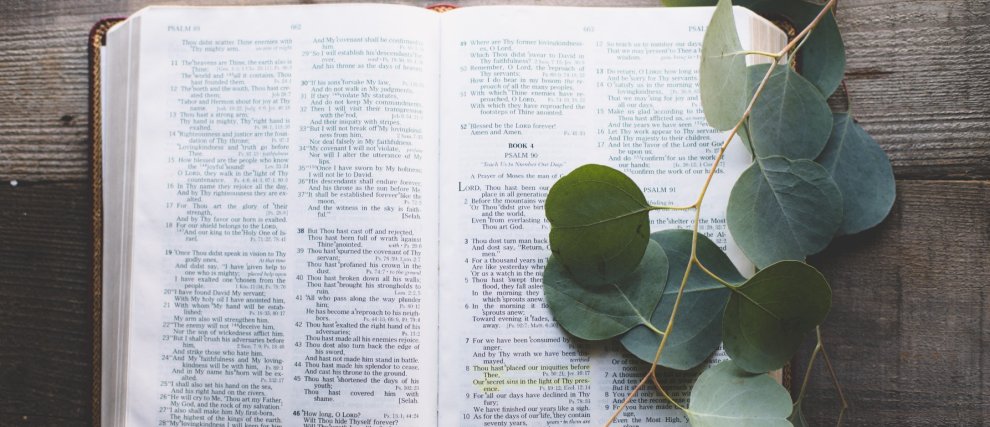Office of Vespers
The Office of Vespers is part of the major prayers of the Liturgy of the Hours. It is the counterpart of the Office of Lauds. In the past reserved to consecrated people, the Liturgy of the Hours is nowadays recited and prayed by many lay people, particularly since the Vatican II council. Whatever the language or the country, it remains the same and facilitates a unity of prayer in the Catholic Church.
Vespers, what is it ?
V/ God, come to our aid.
R/ O Lord, make haste to help us.
This response begins the Office of Vespers, the Office of the evening. The word « vespers » comes from the latin vesper, meaning « evening ». Vespers are the evening prayers of the Liturgy of the Hours. They enable us to give thanks for our day, for all that has been given to us, all the graces He has showered on us. This Office enables us to present to God the work we have done and to ask him to complete it or to render it acceptable, for it is always imperfect.
Vespers is made up of a hymn, of several psalms as well as a reading, in order to give thanks each night for the kind gifts which God has showered on us during our day. We re-read our day, we ask forgiveness for the offenses we have committed and we place our rest in the hands of the Lord.
Vespers is the evening prayer the most prayed in the world : according to the rule of St Benedict, each monastery, priest, religious community or consecrated person vows to pray the liturgy of the Hours. Lauds and Vespers are the unavoidable prayers, but this liturgy is enriched also by numerous other Offices : Terce (Mid-morning Prayer) around 9am, after Lauds, Sext (Midday Prayer) at about 12 noon, None (afternoon Prayer) at around 3 pm then, after Vespers, Compline (Night Prayer), during which we recite the famous antique of the canticle of Simeon. Lauds relates to the rising of the sun whereas Vespers relates to its setting. Sometimes Terce, Sext and None are gathered in an Office called Office in the middle of the day and the Office of Readings, another major prayer, is extended for use as a vigil.
Vespers is a very beautiful prayer, prayed usually in community, but which can also be prayed alone or as a family!
Praying Vespers : the format
The Invitatory (invitation)
The Office begins with the introductory verses :
« God come to our aid, »
« Lord, make haste to help us »
« Glory to the Father, to the Son and to the Holy Spirit,
As it was in the beginning, Is now and ever shall be,
World without end. Amen. »
After this comes the Hymn. It may be sung or read aloud standing and is different each day. It begins the Office and sings the goodness of the Lord, praising his wonders.
The Psalms
The Invitatory is followed by the psalmody. This is made up of a psalm, a canticle of the Old Testament and a psalm of praise which are chanted or recited by the seated assembly. They all end with the following verses :
« Glory to the Father, to the Son and to the Holy Spirit,
As it was in the beginning, is now and ever shall be,
World without end. Amen. »
Each psalm is preceded by an Antiphon, which will be said before the psalmody and taken up at the end of the psalm by the whole assembly together. The Antiphon is a phrase that is always chosen carefully to relate to the psalm or the solemnity of the day.
The Reading
After the psalms comes the brief reading of a biblical text drawn from the Scriptures. This reading, like the Hymn and the preceding psalms is different every day. A time of silence and meditation generally takes place after this reading as well as a response between lector and assembly.
The Magnificat or Canticle of Mary
The evangelical Canticle associated with Vespers is the Canticle of Mary or Magnificat in Latin. It is a passage of the Gospel which is chanted standing upright and is taken from the first chapter of the Gospel according to Saint Luke (verses 42-55). Mary receives the message of the Lord and decides to go immediately to see Elizabeth, her cousin. When she arrives, Elizabeth is given knowledge of Mary’s pregnancy, rejoices, blesses her and Mary proclaims the song which will become known as the Magnificat :
"My soul glorifies the Lord,
my spirit rejoices in God my Saviour
For He has looked on his servant in her lowliness.
Henceforth all generations will call me blessed.
The Almighty works marvels for me
Holy is his Name.
His mercy is from age to age
on those who fear him.
He puts for forth his arm in strength
And scatters the proud-hearted.
He casts down the mighty from their thrones,
And raises the lowly.
He fills the starving with good things,
sends the rich away empty.
He protects Israel, his servant,
Remembering his mercy,
The mercy promised to our fathers,
To Abraham and his sons forever.
Glory be to the Father, to the Son and to the Holy Spirit
As it was in the beginning, is now and ever shall be, world without end. Amen"
The intercessions and the Lord’s prayer
Next come the prayers of intercession, to entrust the day which has passed to the Lord, give him the fruit of our labour and pray for the Church and for the world. They are followed by the prayer of the Our Father, then a benediction to end our journey and go to rest in peace.
Vespers are different each day, according to the liturgical season, the week or the day. Find Vespers each day on the site of www.Universalis.com
Hozana Helps You to Pray Every Night
Hozana helps you discover many Christian spiritual offerings in order to encourage you to pray each day. Discover all the communities we have and choose those which will nourish your prayer life. You can, for example, receive the Gospel of the day with a commentary or the Life of a Saint.

